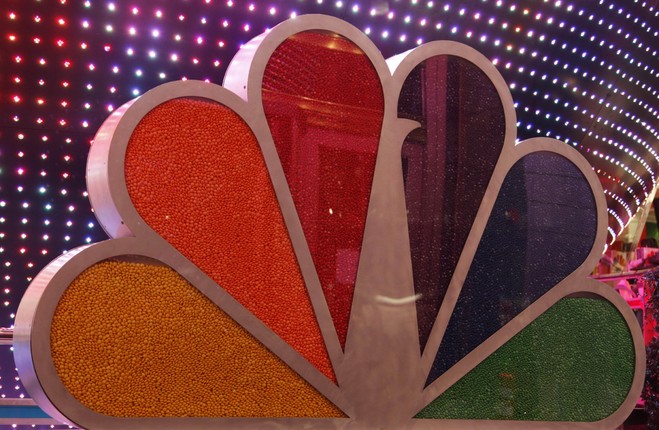IT’S TOO “PACKAGED.” There are too many commercial breaks. And key competitions are broadcast with frustrating time delays so they are seen during prime-time.
Welcome to the drama-filled, not entirely live Rio Olympics, NBC-style.
American television viewers and analysts are taking the network to task over its coverage of the Summer Games.
The problems began with Friday’s opening ceremony, which was broadcast with a delay and interrupted with a series of pre-produced segments and interviews — meaning not all of the actual ceremony was shown.
Early reports said ratings for opening night were down some 30 percent compared with the 2012 London Games, although they picked up a bit once the competition began.
Twitter users dissatisfied with the opening ceremony coverage adopted the hashtag #nbcfail, and it’s being embraced for the sporting events as well.
“I love the Olympics but can’t watch them on NBC. I want sports, not fluff pieces and endless commercials,” one Twitter user wrote.
- Delays, fillers -
Tobe Berkovitz, a professor of advertising at Boston University, said viewers may be turned off “by too many commercials, too much talk and too many prepackaged vignettes.”
Berkovitz said American consumers, who now have a wide array of streaming and viewing options, are increasingly demanding.
“The average American wants to be their own programmer, they want to decide what they see when they see it,” he said.
The public is now to the point where if they want to watch the Olympics, they want to see competition.”
NBC, whose parent NBCUniversal is part of the Comcast media conglomerate, paid some $1.2 billion for the US broadcast rights to the Rio Games.
But in the age of social media, NBC faces a harder task to control the experience.
Michael Socolow, a University of Maine professor of communications and author of a book on the 1936 Berlin Games, said NBC is doing a disservice to viewers by delaying broadcasts of key events.
“It is the duty of the broadcaster to put the viewer into the swimming pool, the rowing shell, and on the running track in real time. In watching live, we become participants rather than audiences,” he wrote in a Boston Globe column.
Olympic broadcasts are now filled with stylized emotional storylines centered upon heroic resilience and overcoming adversity. The Olympic Games, in this sense, has evolved into simply another audience-tested standardized television product.”
NBC’s parallel universe was on full display Tuesday — Team USA won gold in the women’s gymnastics team competition in the late afternoon.
But as prime time coverage started on the US East Coast nearly three hours later, so did the broadcast of the event, as if it were just starting.
Another sticking point beyond tape-delayed coverage: NBC worked with Olympic organizers to ensure key races, like the US men’s swim team gold medal race Sunday anchored by star Michael Phelps, take place in prime time.
These are live but air very late at night on the US East Coast, riling viewers.
Finally, around 11 pm, NBC was nice enough to put on the main event,” Google Ventures partner MG Siegler said in a Medium post.
“I had to wait those four hours and sit through the mind-numbing ads.”
Defending Olympic beach volleyball champion Kerri Walsh Jennings and partner April Ross have played two matches so far at midnight Rio time, with a third to follow.
Fans of that sport seem excited on Twitter, but it meant that the men’s gymnastics team final aired Monday on tape-delay close to midnight, hours after it has actually ended — a move panned by some viewers.
“How special… airing some #mensgymnastics at 11:40 pm after a qualifying beach volleyball game left some extra time,” tweeted one irate viewer, Sheri Minkoff.
- ‘Romance novel’ approach -
Washington Post sports columnist Sally Jenkins meanwhile bristled at reported comments that many viewers, especially women, were more interested in the “narrative” than live competition.
NBC has been advancing this paperback romance novel approach for many years now, tape-delaying and heavily packaging the Olympics with soft-focus stories,” Jenkins wrote.
“If we’re lucky, the Rio Games finally will persuade NBC execs their Harlequin strategy is outdated.”
NBCU spokesman Greg Hughes said in an email that “every competition is streamed live” with “no exceptions,” a practice it began in 2012.
Additionally, he said that “many events are being shown live in primetime on NBC,” and on its cable networks.
Some viewers however are not savvy enough to find internet streams or “cast” them to large televisions.
Others say the live streams are not quite up to the level of professional broadcasts and may be ruined by glitches.
Edmund Lee, managing editor at the online news site Re/Code, said NBC’s “raw” streams are not equivalent to professional broadcasts.
In the case of women’s epee, it was a single-camera longshot of two people in masks pointing and screaming,” he wrote.
“The lack of close-ups or editing made it look like a security camera feed. It was bizarre to watch and unsatisfying.”
The42: Rio 2016 Olympics / SoundCloud
The42 is on Snapchat! Tap the button below on your phone to add!

